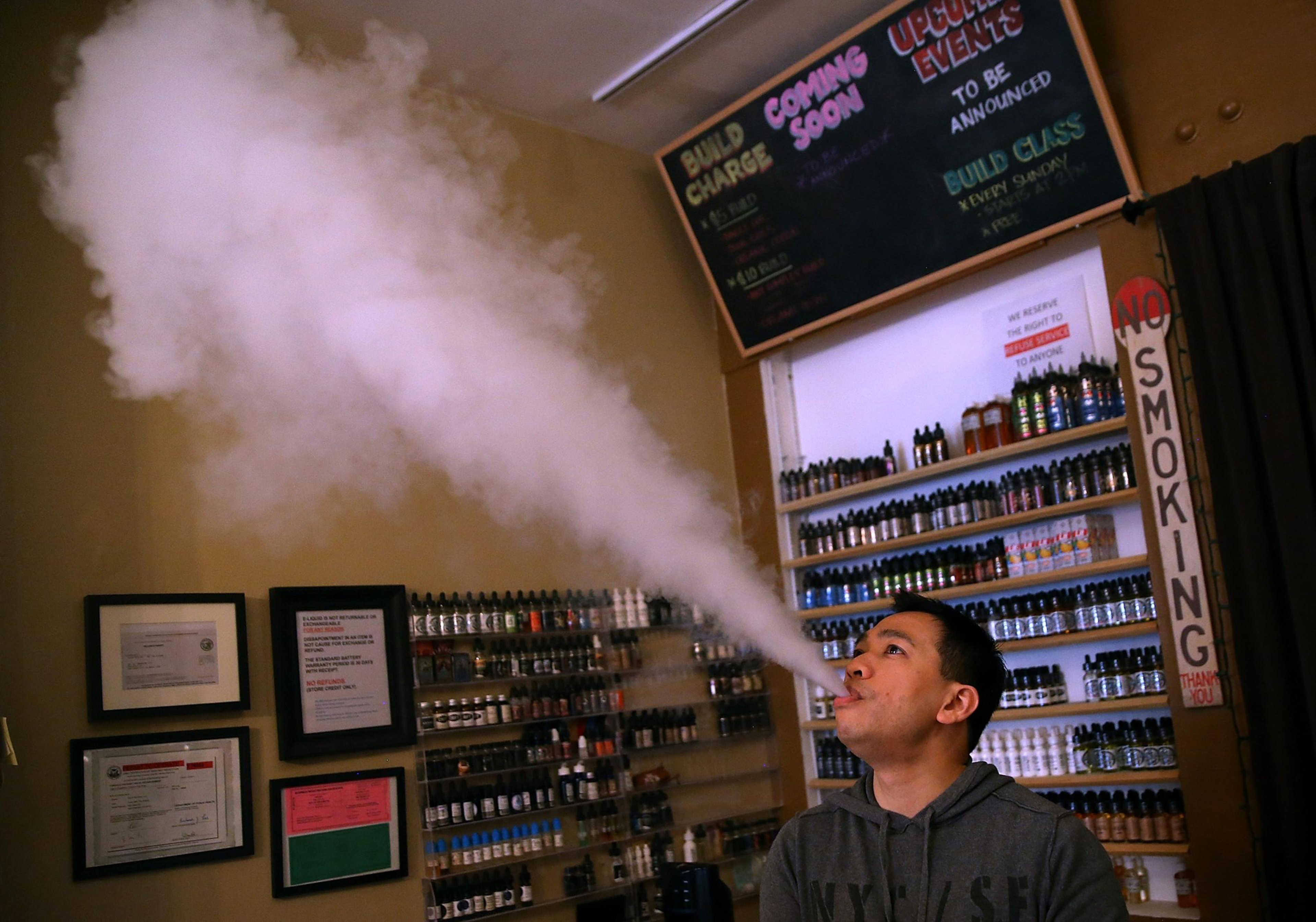With flavors like watermelon lemonade, rainbow candy and piña colada, vape sellers have hooked a new generation on nicotine products that can harm brain development and raise the risks of disease.
That’s according to a growing body of scientific research and a new lawsuit filed by San Francisco City Attorney David Chiu’s office that accuses three online sellers, The Finest E-Liquid, the Vape Society and DaSmokey, of illegally selling the flavored vape products in the city.
Sales of flavored tobacco products have been banned in San Francisco since 2018, when voters approved Proposition E, which prohibited the sale of such products in response to the rising popularity of youth vaping. In 2019, the Board of Supervisors unanimously passed a ban on the sales of most electronic cigarettes in the city over the protests of Juul Labs, which was then headquartered in San Francisco and a major producer of vapes. That same year, Juul sponsored a ballot measure that would have reauthorized the sale of e-cigarettes—but it was overwhelmingly defeated (opens in new tab).
Now, Chiu’s office believes that the three online sellers are flouting bans and regulations of e-cigarette products by continuing to ship flavored vaping supplies to buyers in San Francisco. The alleged sales are happening despite broad restrictions on flavored vape products both locally and elsewhere.

“We have worked decades to decrease tobacco usage and to try to end nicotine addiction by banning flavored tobacco products and e-cigarettes targeting young people,” said Supervisor Shamann Walton, who co-authored the legislation banning e-cigarette sales. “San Francisco overwhelmingly voted against e-cigarettes in 2019 with over 81% of the votes, but we know there are tobacco retailers that continue to violate our city laws by selling banned products online to San Francisco residents.”
Vaping remains common among San Francisco high school students in spite of heavy restrictions on the products.
In 2021, 8% of San Francisco high school students said they used e-cigarettes, and 20% said they had tried them. The vast majority of students who vape choose flavored tobacco products, according to research from the U.S. Centers for Disease Control and Prevention.
“Flavored e-cigarettes are hooking a new generation on nicotine. They’re putting millions of people at risk and threatening decades of progress,” Chiu said. “It’s incredibly disturbing. It’s true throughout the county and unfortunately true in San Francisco.”

According to a complaint filed at San Francisco Superior Court Tuesday, city investigators purchased products from the three sellers that included a container of “The Finest Vanilla Almond Custard e-liquid,” a disposable vape called “Flum Pebble 6000 Puff, Matcha flavor” and packages of “Apple Pearadise” and “Straw Melon Sour Belts” e-liquid, among others.
The websites gave no indication that the products could not be shipped to San Francisco and the products were shipped in short order to an address in the city, the complaint said.
Moreover, the city alleges that the companies violated a state regulation, codified in California’s Stop Tobacco Access to Kids Enforcement (STAKE) Act, that requires online sellers to call the purchaser before shipping tobacco products and use certain language on the package—both safeguards intended to prevent minors from buying the products online.
“Online sales are, unfortunately, the next frontier of this public health crisis,” Chiu added.
The Department of Public Health has maintained a list of websites that sell tobacco products online, and the city suspected some of those might be selling unlawfully, Chiu said.
Restrictions on flavored tobacco might have also driven consumers, including minors, to buy products online: A study by the University of California San Diego found after a state law banned retailers from selling most forms of flavored tobacco statewide, there was a spike in online shopping queries (opens in new tab).
The findings raised “concerns about potential loopholes in policy enforcement,” the researchers wrote.
After legislators passed Senate Bill 793 in 2020, California became the second state in the nation to impose a sweeping ban on flavored tobacco, with certain exemptions for hookah products. Major tobacco firms including Philip Morris and R.J. Reynolds sponsored a ballot measure that sought to overturn the ban, but the measure was unsuccessful.
In 2020, the Food and Drug Administration effectively banned all flavors of e-cigarettes excluding menthol and tobacco. But the FDA’s policy (opens in new tab), devised under former President Donald Trump, excluded disposables (opens in new tab) and regulators have struggled to control the sprawling market. (opens in new tab)
The city is asking the court to grant injunctive relief—essentially, by telling the companies to comply with the law—and for civil penalties and attorney’s fees.
“We want to make it very clear that these products are incredibly harmful and their sale to San Franciscans will not be tolerated,” Chiu said.
